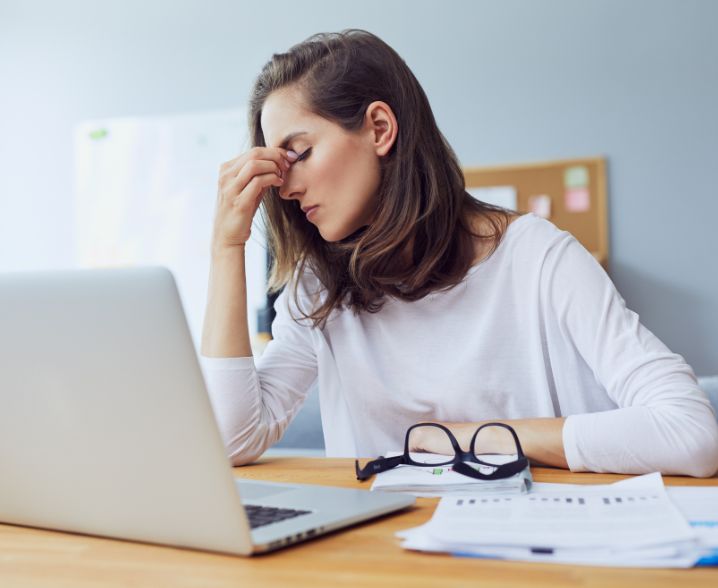The different causes of a panic attack
The different causes of a panic attack
You may not be in danger, but your body may still react as if it is in danger.
If the fear response is completely disproportionate to the situation you are in, it is a panic attack. You can read exactly what a panic attack is and what causes it in the article below.
Naturally, we also cover the treatment of a panic attack.
What is a panic attack?
During a panic attack, a physical reaction occurs in out of proportion to what the situation demands at that moment. Your body enters a “fight-flight-freeze” state. In this state, several hormones are released. The best known of these is adrenaline. In actual danger, these hormones can be very useful by ensuring that you can react as quickly as possible. Unfortunately, when a panic attack occurs, they only lead to discomfort.
Going through a panic attack is very unpleasant. Yet it happens to at least 10% of the population at least once in life. Some people will suffer more often than once.
What criteria belong to a panic attack?
International agreements are made about which criteria apply to a particular mental disorder based on (new) scientific insights. These criteria are found in the “Diagnostic and Statistical Manual of Mental Disorders (DSM).
For example, the DSM-5 lists the criteria for a panic attack. These are as follows:
‘A sudden wave of intense anxiety or intense discomfort that peaks within minutes, and is accompanied by four (or more) of the following symptoms.
Cardiopulmonary symptoms
- Palpitations, pounding heart or accelerated heartbeat;
- Pain or an uncomfortable feeling in the chest;
- Feelings of breathlessness or suffocation;
- The feeling of gasping for breath.
Autonomic symptoms
- Perspiration;
- Cold chills or hot flashes.
- Gastrointestinal symptoms:
- Nausea or stomach and/or abdominal discomfort.
- Neurological symptoms:
- Trembling or trembling;
- Paresthesias (numbness or tingling sensation);
- A feeling of dizziness, unsteadiness, being lightheaded or fainting.
- Psychiatric symptoms:
- Derealization (feelings of unreality) or depersonalization (feeling alienated from oneself);
- The fear of losing self-control or “going crazy
- The fear of dying.
If anxiety about a possible new panic attack develops or unexpected panic attacks keep repeating, we speak of panic disorder.
What causes panic attacks?
Some of these causes include genetics, stress, drug use, caffeine intake, phobias and other psychological conditions. In addition, gender also plays a role. In fact, women are more likely to have a panic attack.
Upbringing and previous experiences also increase the likelihood of panic attacks. For example, certain places, situations, thoughts or emotions may trigger additional anxiety. This anxiety can then escalate, as it were, and lead to a panic attack. If a panic attack occurs after an obvious cause, it is often a phobia.

At GGZonline, we offer specialty mental health services.
Proper treatment at GGZonline
Do you suffer from panic attacks or have had them and fear the next one? Then it is wise to seek psychological help. The psychologists at GGZonline are happy to help with your recovery through (high) intensity, online therapy.
During therapy, you will be given tools to help you cope with a panic attack and will work with your psychologist to prevent future panic attacks. For this professional help, make a quick appointment at GGZonline!
Sign up today or get a quick call back
Could you use some help? Have us call you back for a no-obligation online consultation or sign up directly using the buttons below.
